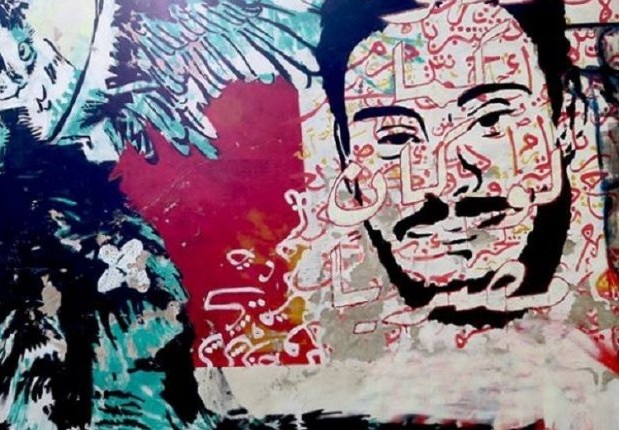

What we know about Giulio Regeni is that he was a young, promising scholar studying at Cambridge University who went to Cairo to write a doctoral thesis on the social and economic role of independent trade unions in the Egyptian society after the collapse of Mubarak’s regime. Working on his project, he was able to research and monitor from a close-up activities of numerous informal trade unions, talk to local activists and watch the dynamic grassroots movements that sprang out dynamically as a response to expansion of the political freedom after the 2011 revolution.
Giulio Regeni was killed in unexplained circumstances on the morning of 25 January last year, on the fifth anniversary of Tahir Square revolution. He left his house as he did many time before and there were no news about his whereabouts for the next 12 days until 6 February when his mutilated body, rendered unrecognisable by endless injuries, was discovered near the desert abandoned on the side of the Cairo – Alexandria motorway.
We do not know the truth about Giulio Regeni. Not yet. His disappearance spawned a flood of untrue information, abbreviated reconstructions, many misleading clues and promises of cooperation with resolution of the case made by Egyptian investigators, promises that were never fulfilled in real life. From what we know, the only tangible deliverables of his murder investigation which could be as well called a farce, are chilled diplomatic relations between Italy and Egypt, followed by recalling of the Italian ambassador to Egypt. So why did Giulio Regeni die and why was he followed by the secret service of General al-Sisi’s regime?
Is Jean Lachapelle, a researcher from Turin University, an expert in Egyptian policy and trade union movement, right when he argues that security services could have misinterpreted Giulio Regeni’s research, wrongly reading it as an “attempt to stage a coup against the regime”?
We continue to witness relentless attacks at independent trade unions that are accused of obtaining illegal funding from international organisations to stage workers protests and incite employees to rebel against the official trade union, the Egyptian Federation of Trade Unions (ETUF), the sole organisation not only recognised by also lavishly funded by the regime which, as it is generally believed, acts as a bona fide “protector“ of ETUF’s activities.
The goal is obvious and involves criticism and criminalisation of trade unions, civil society organisations and, in a more general context, democratic forces in the eyes of the public. Egypt is a country with a disturbing climate for suppression of civil liberties where opposition in any guise is silenced by the authoritarian regime which uses repression as its main weapon to later disguise it in the eyes of foreign governments and international trade partnered using the much-hackneyed narration of the “war on terrorism.” We may also learn a lot from the Turkish case, which unfortunately provides us with very negative take-aways. Yet Islamic terrorism was never the true enemy of General as-Sisi’s government or his predecessors.
The only true threat for the absolute power is posed by secularism and socialist opposition, values embodied by independent trade unions more than ever before which challenge the regime and pave the way for upcoming changes. Giulio Regeni had a profound understanding of this aspect of trade union activities as he wrote that many spontaneous initiatives “are tearing down the wall of fear” and “undermine the rhetoric used by the regime to justify its existence and repressions aimed at the civic society.” Being a seasoned researcher, Giulio Regeni aptly interpreted transformations set in the Egyptian context. He highlighted the key role played by females, watched strikes and protests staged in different parts of the country by workers employed at weaving mills, cement plants, the construction sector where protests that involve the refusal to work have been announced illegal in the ruling of the Supreme Administration Court of 28 April 2015, where unionists from informal trade unions are not recognised and have no right to publish any documents as otherwise they may be punished with a fine, arrested, imprisoned or in most serious cases, face a death penalty.
Today, Egypt is a far cry from the country Egyptians envisioned 5 years ago. It is strikingly different, yet fundamentally similar to the country they knew before the Arab Spring. The former apparatus is now being restored and just like before it is unable to respond to issues haunting the country immersed in a deep economic and generational crisis, where youth unemployment is running high at 25% (or 54% among females), the workforce totals 27 million, and the size of the population is nearing 90 million.
Since 2011, the space for expansion of political freedoms which spawned hundreds of new trade unions gave way to the space of repression and undermining the union movement, a space where fear prevails. It’s no coincidence that two new independent trade union federations – the Egyptian Federation of Independent Trade Unions (EFITU) and the Egyptian Democratic Labour Congress (EDLC) have been convening no general meetings since 2013.
Giulio Regeni wrote that regardless of the existing fragmentarisation of the movement where each and every union is practically pursuing autonomous initiatives on the local level, there is a strong drive for coming united, participation and championing joint initiatives. This need has been aptly interpreted by the Centre for Trade Union And Workers’ Services (CTUWS) which is not representative in the heterogenic context of the Egyptian trade union universe, but is almost certainly one of the central reference points for an independent trade union movement in its final phase.
From the Egyptian revolution of 25 January 2011 until today, the only newsworthy development in the “new” Egypt was adoption of the new Constitutional Charter which currently carries no more significance that the paper it was written on as it is not applied in practice. Its Article 76 states that “workers are free to establish their own trade unions.”
This process is implemented as a result of joint efforts of the opposition which more than ever is represented by active independent trade unions and their leaders who as a result of relentless pressure, are forced to work in increasingly challenging circumstances. Today, regulations in force impede operations of trade unions. These documents include the act of 1976, or a legal act that bypasses the constitution and limits the rights of workers to organise, effectively prohibiting establishment of independent unions and refusing to acknowledge the existence of any organisation save for the Egyptian Federation of Trade Unions (ETUF), an overly bureaucratic organisation with close links with the regime, accused of working exclusively for the interest of public authorities.
To oppose this wave of repression and protect activities undertaken by independent unionists, the Centre for Trade Union And Workers’ Services (CTUWS) began to act as the key promoter of the campaign designed to prevent the unprecedented attack on workers’ rights. “Together for Labour Freedoms” initiative was supported by more than 150 entities, including trade unions and their leaders who came together united during a major meeting held on 11 December last year. The event was also attended by Giulio Regeni and covered in a feature published by the “Il Manifesto” daily.
Four months on, the history of Giulio Regeni, continues to take centre stage in the Egyptian public debate and ignite the imagination of unionists and workers fighting daily for the same rights the young scholar wanted to describe, who signed up unblinkingly to the LabourStart campaign and who today request as vehemently as we do, the truth about the death of Giulio Regeni.
This project has been funded with support from the European Commission. This publication reflects the views only of the author, and the Commission cannot be held responsible for any use which may be made of the information contained therein.
Downloads
- REPORT FINALE ICARUS (261.1 KiB, 1,769 hits)
 Coorindamento per andare oltre la direttiva
Coorindamento per andare oltre la direttiva
Date: Wed Sep 30 13:31 A cosa servono i CAE
A cosa servono i CAE
Date: Wed Sep 30 13:28 Statistiche sui CAE
Statistiche sui CAE
Date: Wed Sep 30 13:20
-

-

ANTONIO ZAGARI – EWC SUEZ, FIOM CGIL, MILAN
12 September 2016 By Dedalus -

MARIO ONGARO – THE COORDINATOR OF FISAC CGIL INTERNATIONAL DEPARTMENT
12 September 2016 By Dedalus
-

José Manuel López Viñolo, EWC Saica Pack, CCOO de Catalunya
16 February 2016 By Dedalus -

-

Andrea Capelli – Solvay EWC, Filctem Cgil, Milan
12 July 2016 By Dedalus
-

GIULIO REGENI – UNDERSTANDING THE EGYPTIAN DEMOCRATIC WORKERS MOVEMENT
12 September 2016 By Dedalus -

Sonia Cattaneo – EWC Air Liquide, FEMCA CISL Milan
15 February 2016 By Dedalus -

Juan Ramón Amorós, EWC Boehringer-Ingelheim, CCOO
16 February 2016 By CCOO de Catalunya

Sito web a cura del Dipartimento Internazionale di CGIL Lombardia: internazionale@cgil.lombardia.it (Responsabile Fabio Ghelfi).



Leave a reply